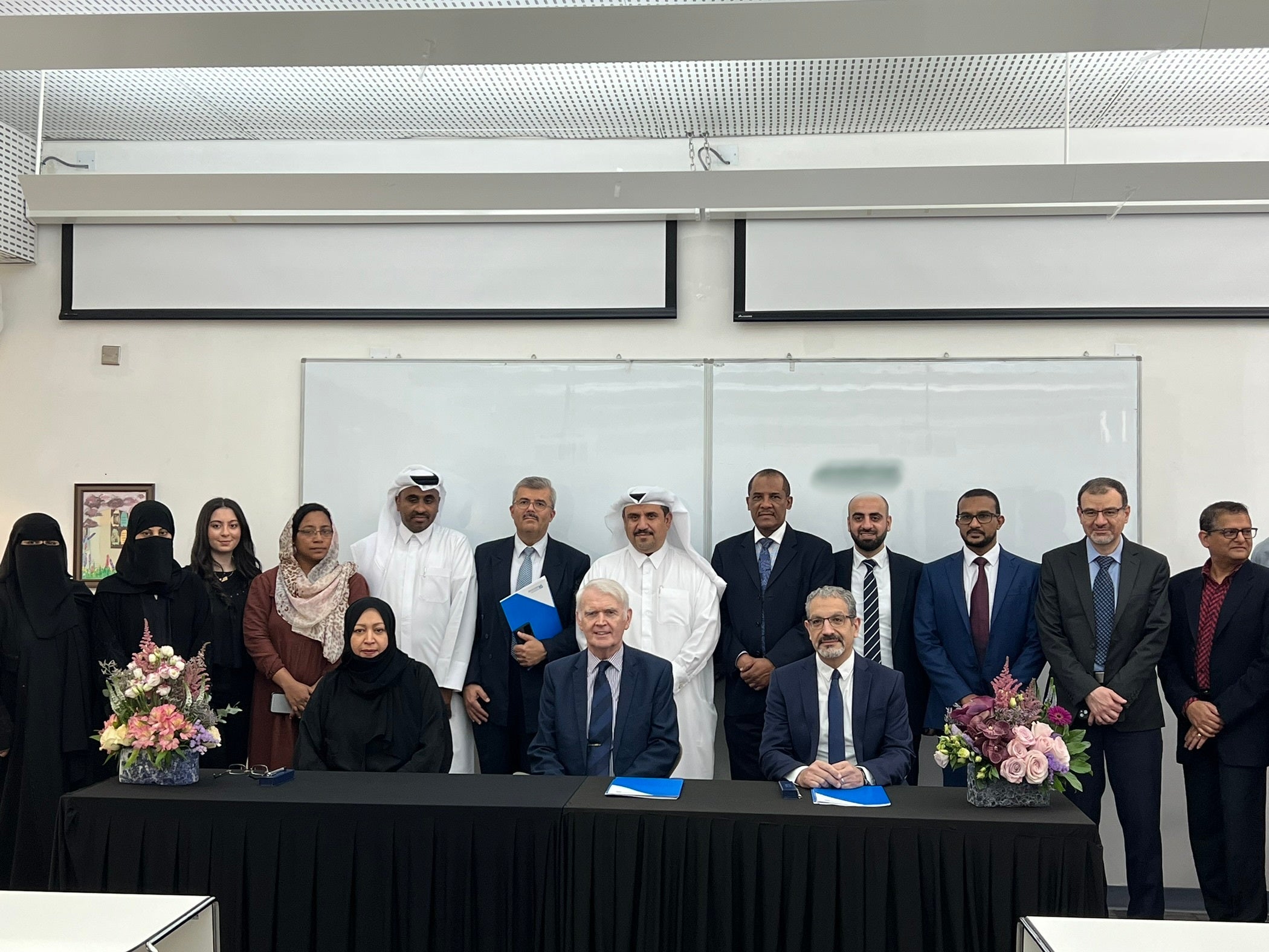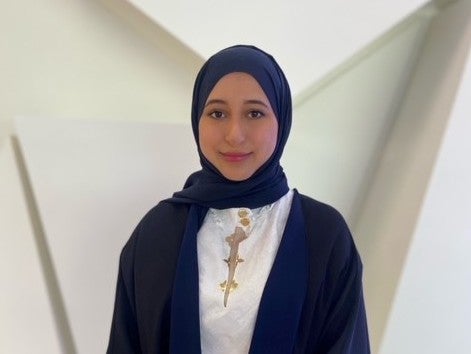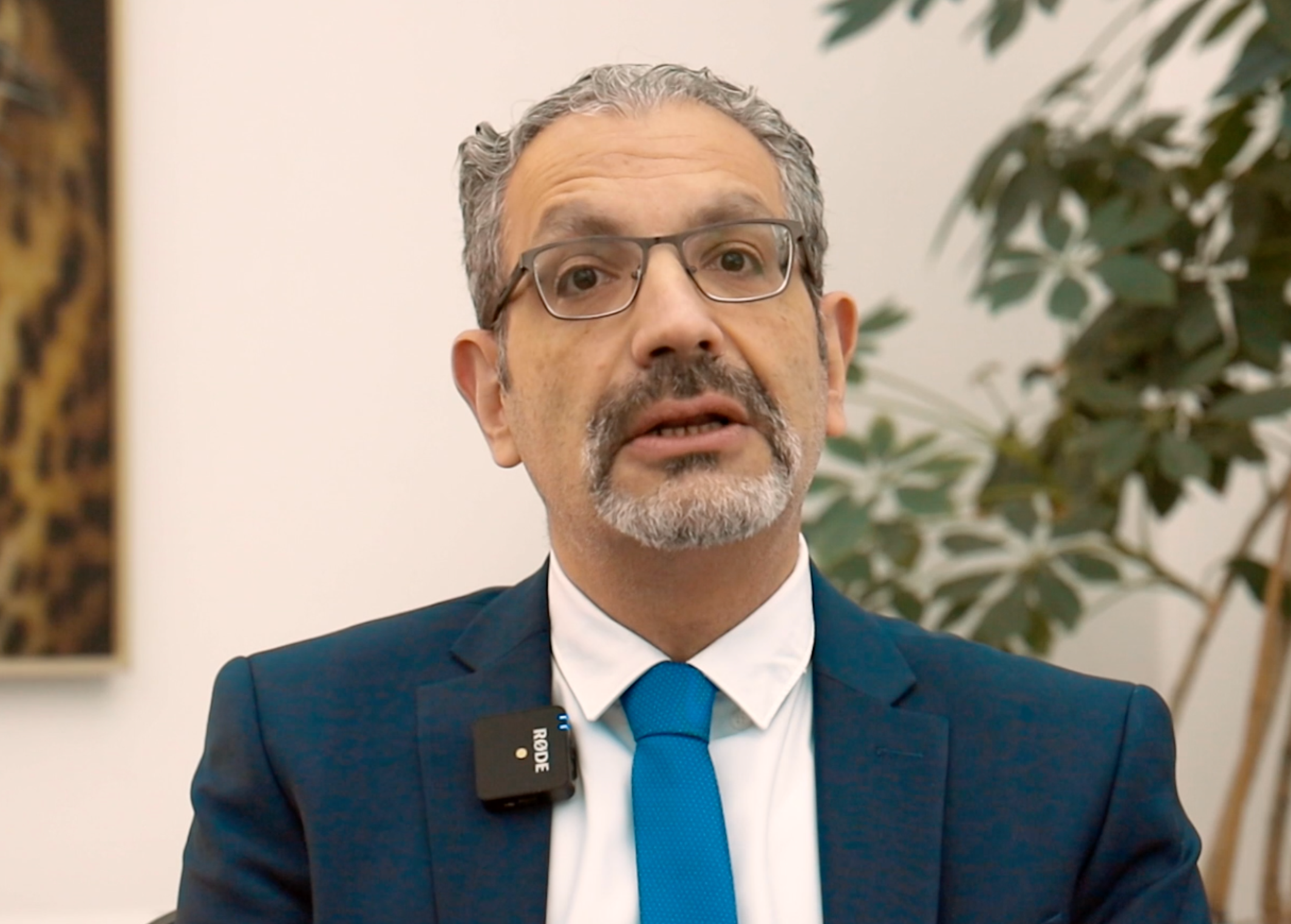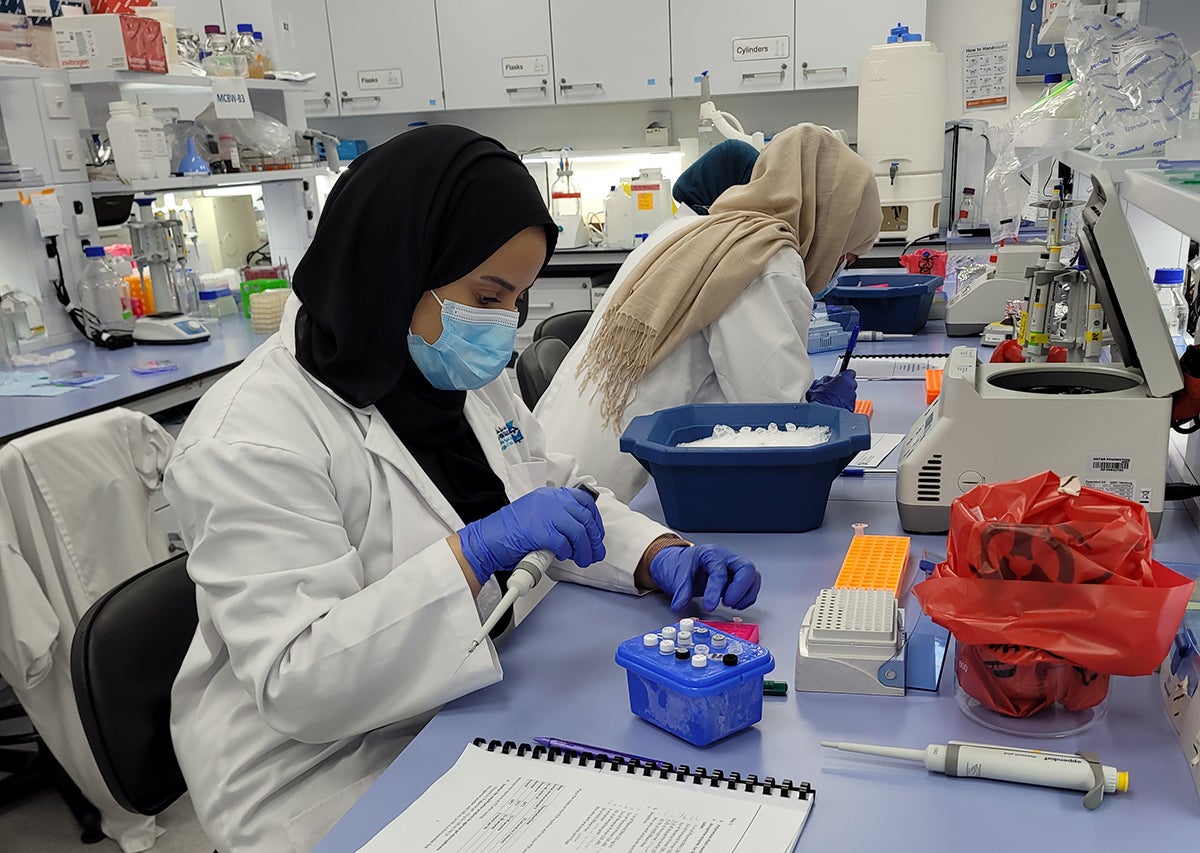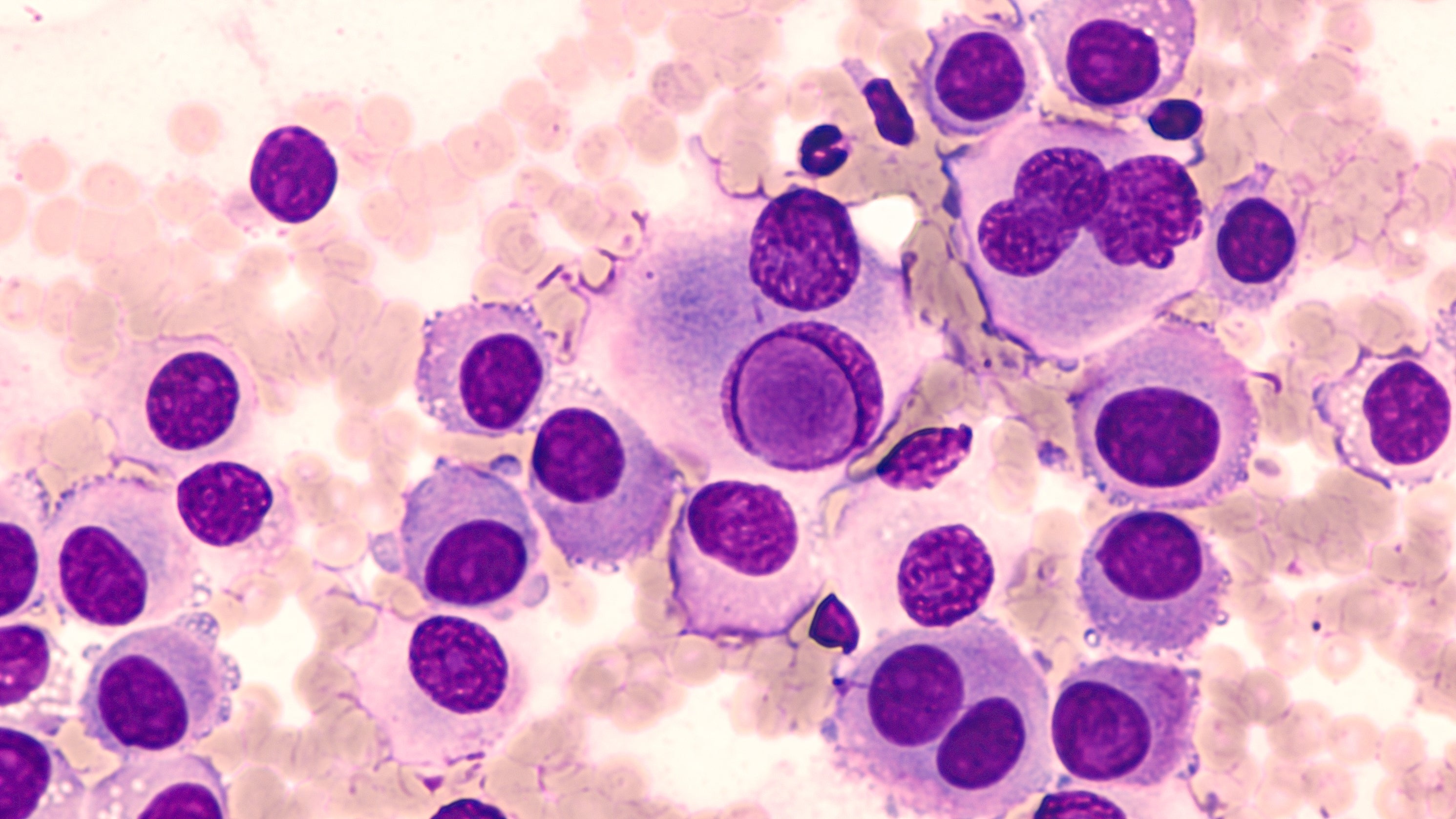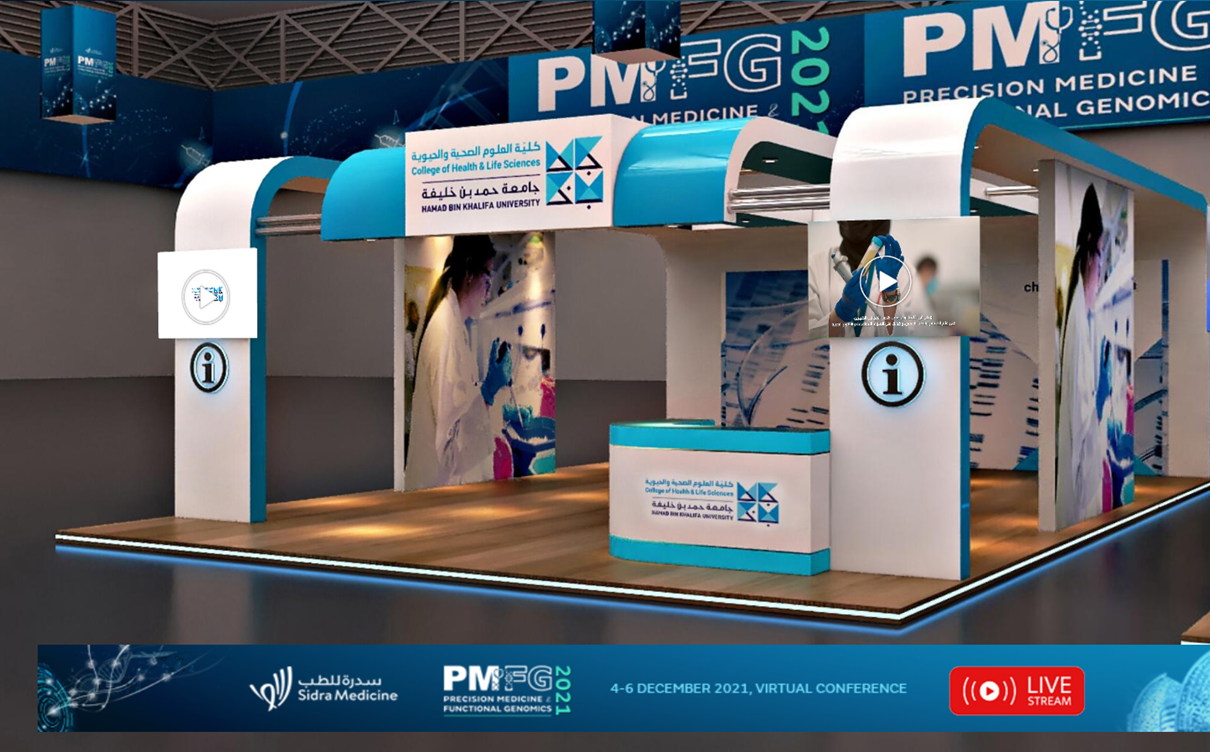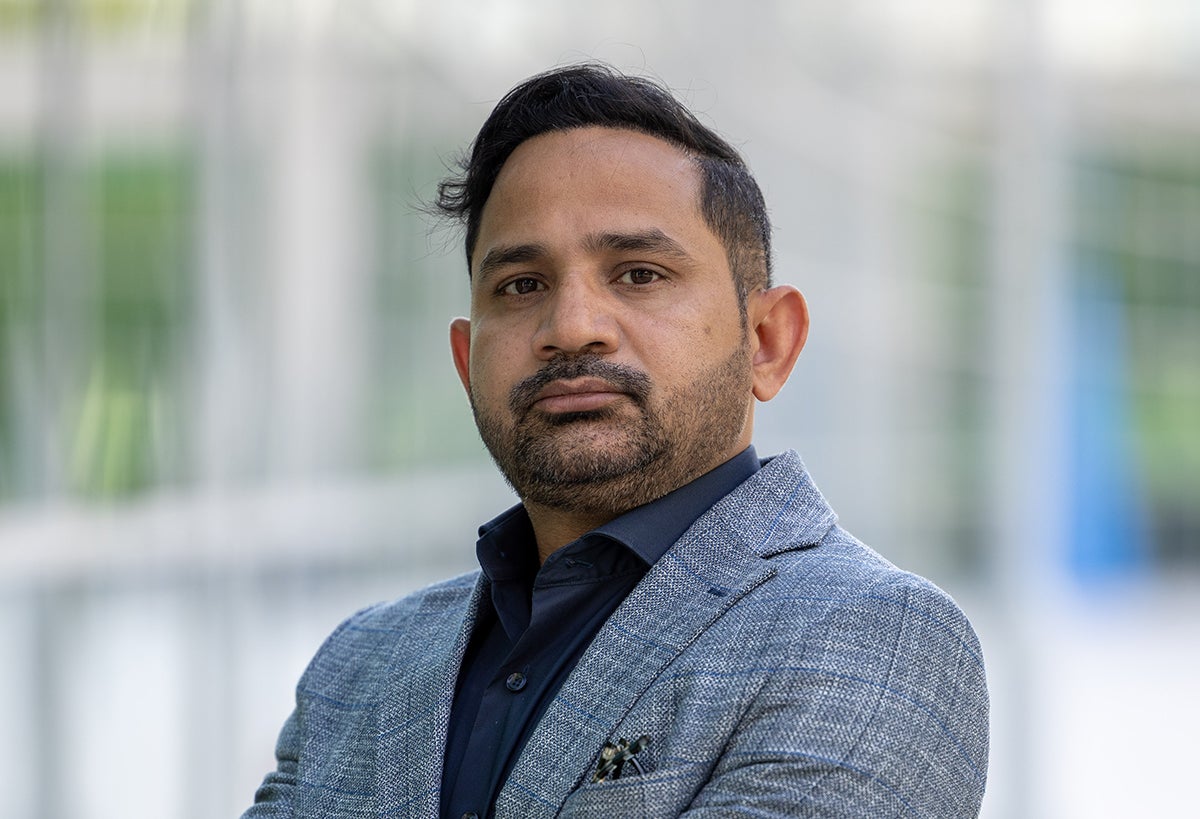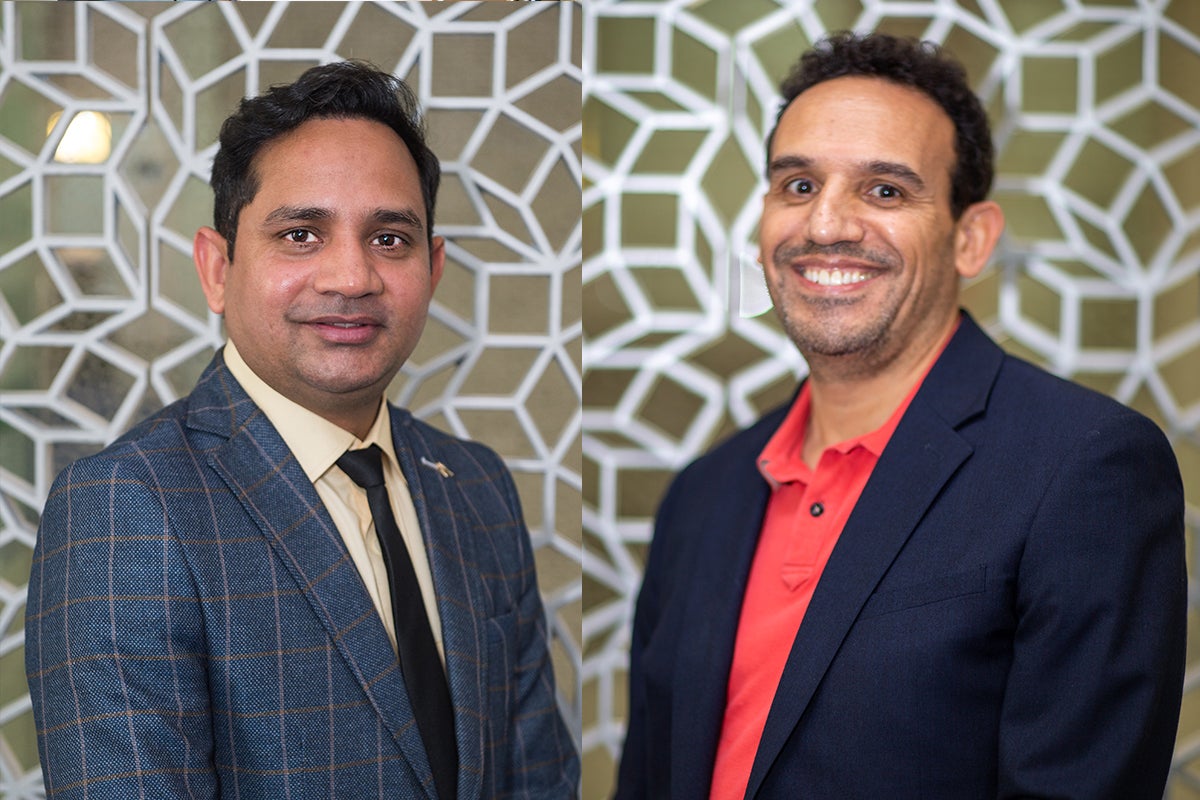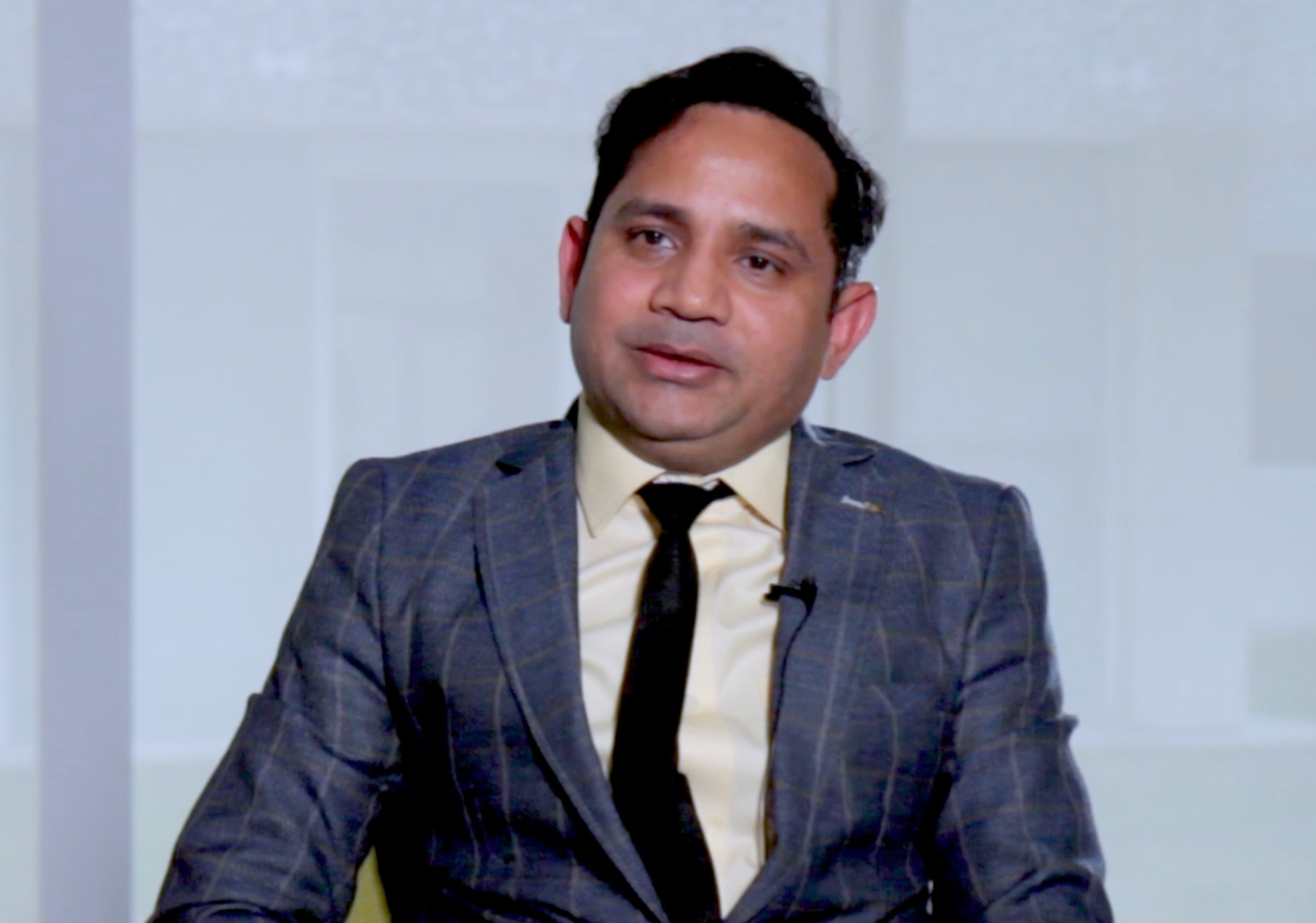
Hope for Ischemia: Oxygen Sensors Up Quality of Life for Heart Patients
College of Health and Life Sciences assistant professor’s research inspired by working alongside 2019 Nobel Prize Winner
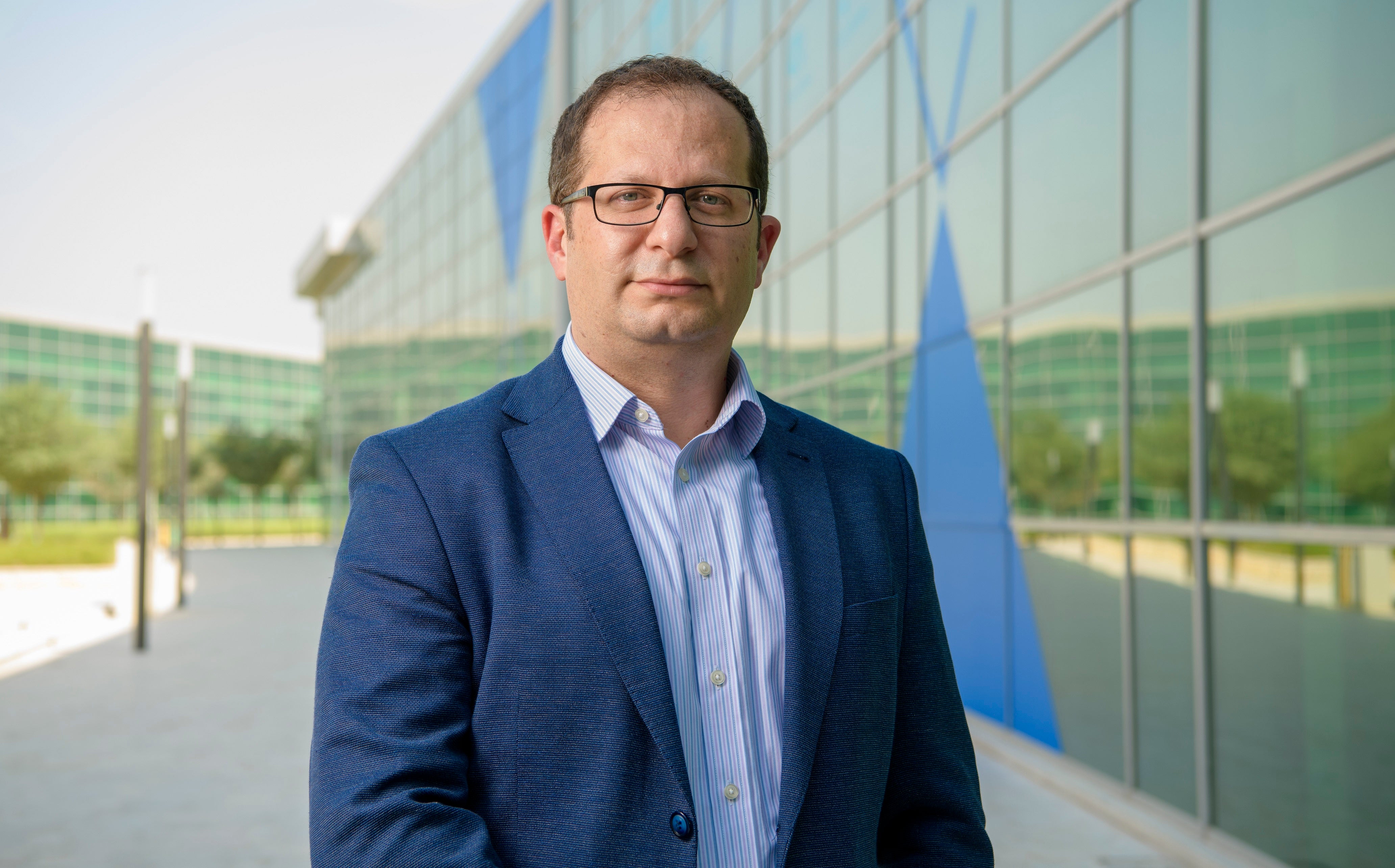
A ‘regular as clockwork’ routine, fully rationalized approach to data-collection and philosophy-pondering meetings were all regular features of Sir Peter Ratcliffe’s laboratories. And no one is better positioned at Hamad Bin Khalifa University (HBKU) to reflect on working in such a rarified environment than Dr. Ayman Al Haj Zen.
Between 2016 and 2019, the Assistant Professor at the College of Health and Life Sciences (CHLS) experienced at first-hand the benefits and rewards of working with a Nobel laureate.
Alongside Harvard University’s William Kaelin and Johns Hopkins University’s Gregg Semenza, Sir Peter was recently awarded the 2019 Nobel Prize for Physiology and Medicine for his research into the consequences and effects of hypoxia.
“The Ratcliffe group is focused on uncovering the key molecular mechanisms of oxygen sensing in the body,” said Dr. Al Haj Zen. “Originally thought to be only present in our kidneys, these enable cells to adapt quickly and survive the low-oxygen environment otherwise known as hypoxia. When oxygen levels decrease, a protein complex called the hypoxia-inducible factor (HIF) builds up in cells. The rise in HIF triggers a number of effects including the restriction of oxygen-consuming processes in cells and enhanced delivery of oxygen to tissues by boosting the creation of new red blood cells.”
Another important feature of the Ratcliffe group’s work was groundbreaking research into low red blood cell counts typically endured by anemia sufferers, especially in extreme cases where blood transfusions yield limited results. This resulted in the development of Roxadustat, a drug that’s currently undergoing clinical trials for the treatment of anemia associated with chronic diseases.
“Thanks to breakthroughs in oxygen sensing systems, new drugs for patients suffering from other diseases are on the horizon,” added Dr. Al Haj Zen. “That’s because hypoxia is often a feature of cancer, chronic pulmonary disease, cardiovascular ischemic disease and other equally complex conditions.”
During his time at Ratcliffe’s laboratories, Dr. Al Haj Zen’s research also focused on treatments for ischemia, a condition that restricts blood supply to tissues and causes a shortage of oxygen required to keep tissue alive. Fast forward to 2019, and the CHLS assistant professor is now exploring how to manipulate cellular oxygen sensing elements to improve the growth of blood vessels in ischemia. In these studies, Dr. Al Haj Zen’s group uses in vitro 3D culture and organ-on-chips models to evaluate vascular growth.
“Our collaboration with Sir Peter’s research group will pave the way for promising new strategies to fight vascular ischemic diseases, including coronary heart disease.”
Dr. Al Haj Zen also hopes his time at the University of Oxford will provide ample food-for-thought among the CHLS’ student body. “If there’s one thing I’d encourage my students to do, it would be to always take the road less traveled. Self-discipline, striving for perfection, and humility should always complement your chosen scientific pathways.”
CHLS, one of HBKU’s fastest-emerging academic arms, pays considerable attention to the areas of sensory sciences, cardiovascular disease, metabolomics, and cancer. The college offers five degrees often classified as unique in the Middle East.
Read more about CHLS students making strides in breast cancer research.
Related News

HBKU College of Health and Life Sciences and Equine Veterinary Medical Center Sign MoU
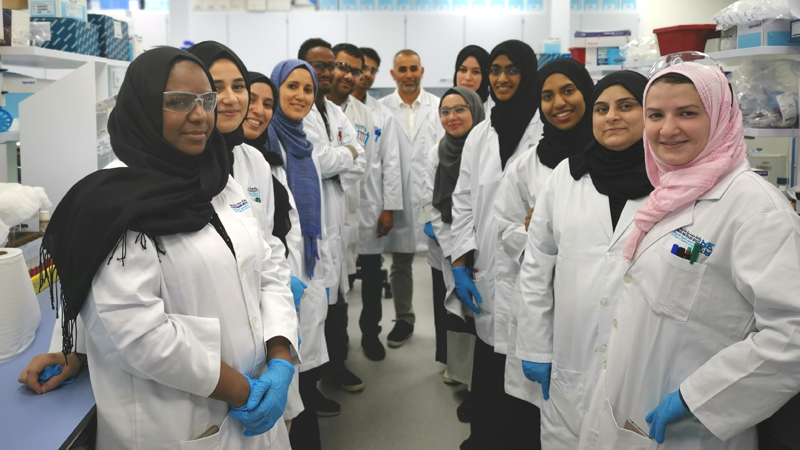
HBKU’s College of Health and Life Sciences Workshop Advances Laboratory Skills of Graduate Students
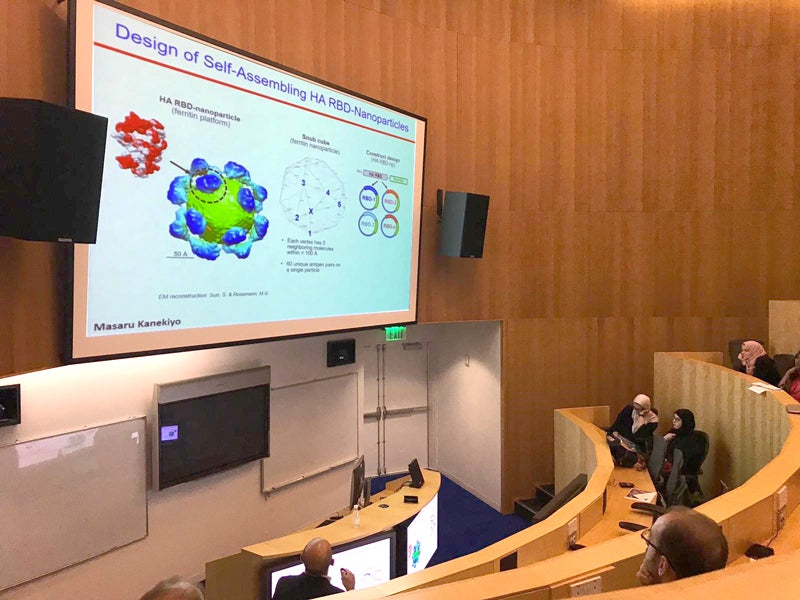
HBKU’s College of Health and Life Sciences Hosts Seminar on Influenza Vaccines
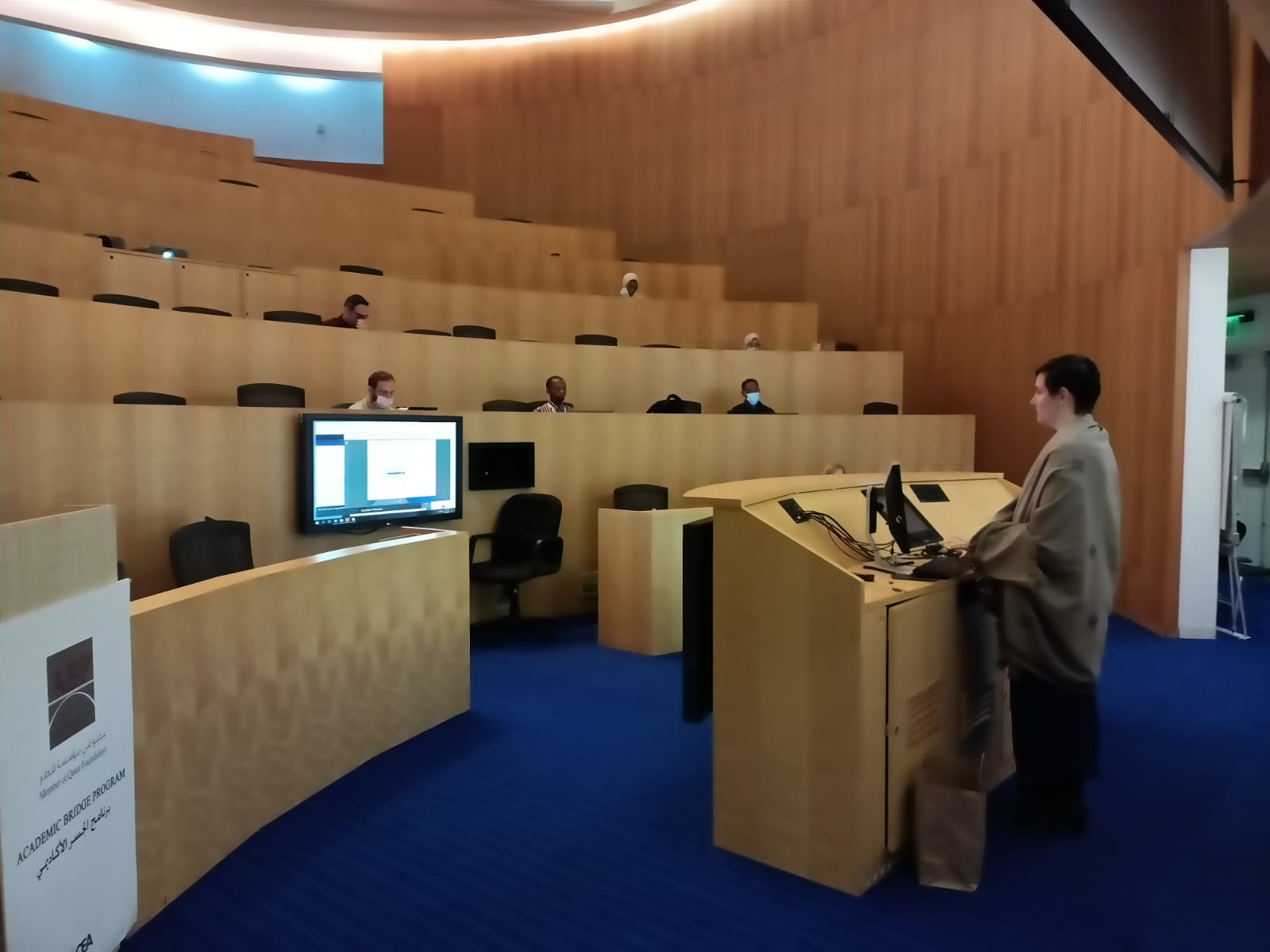
College of Health and Life Science Equips Physicians to Analyze and Interpret Genetic Variation
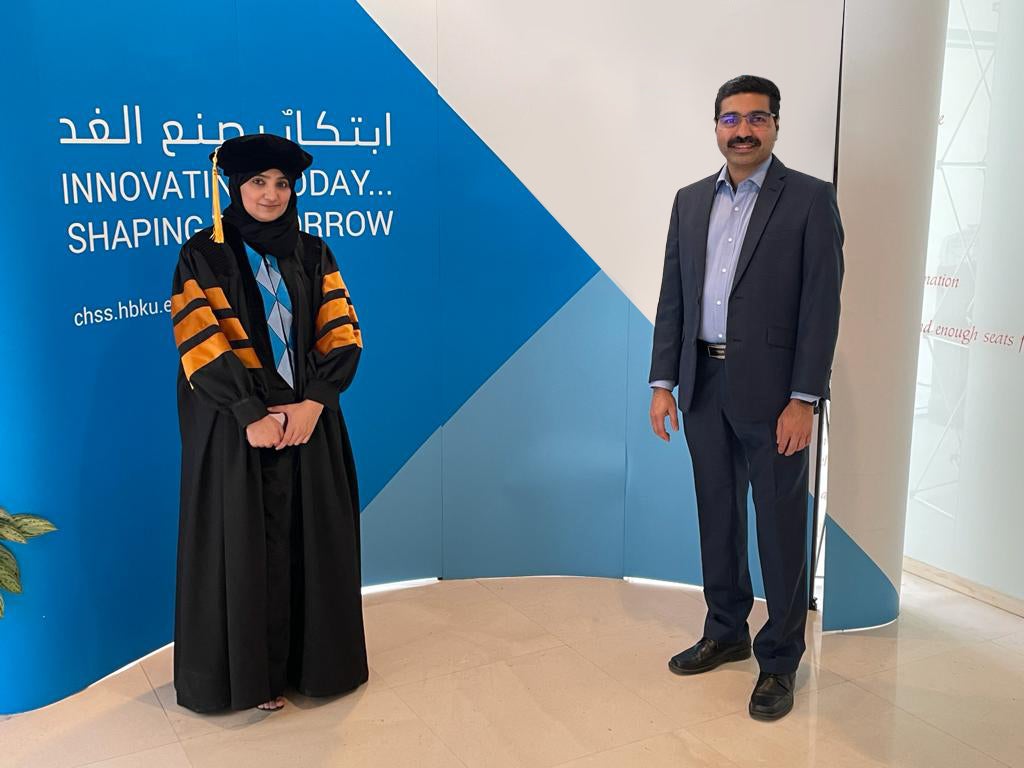
CHLS Aims at Precision Medicine Approach with Research on Antidepressant Prescription Trends in Qatar
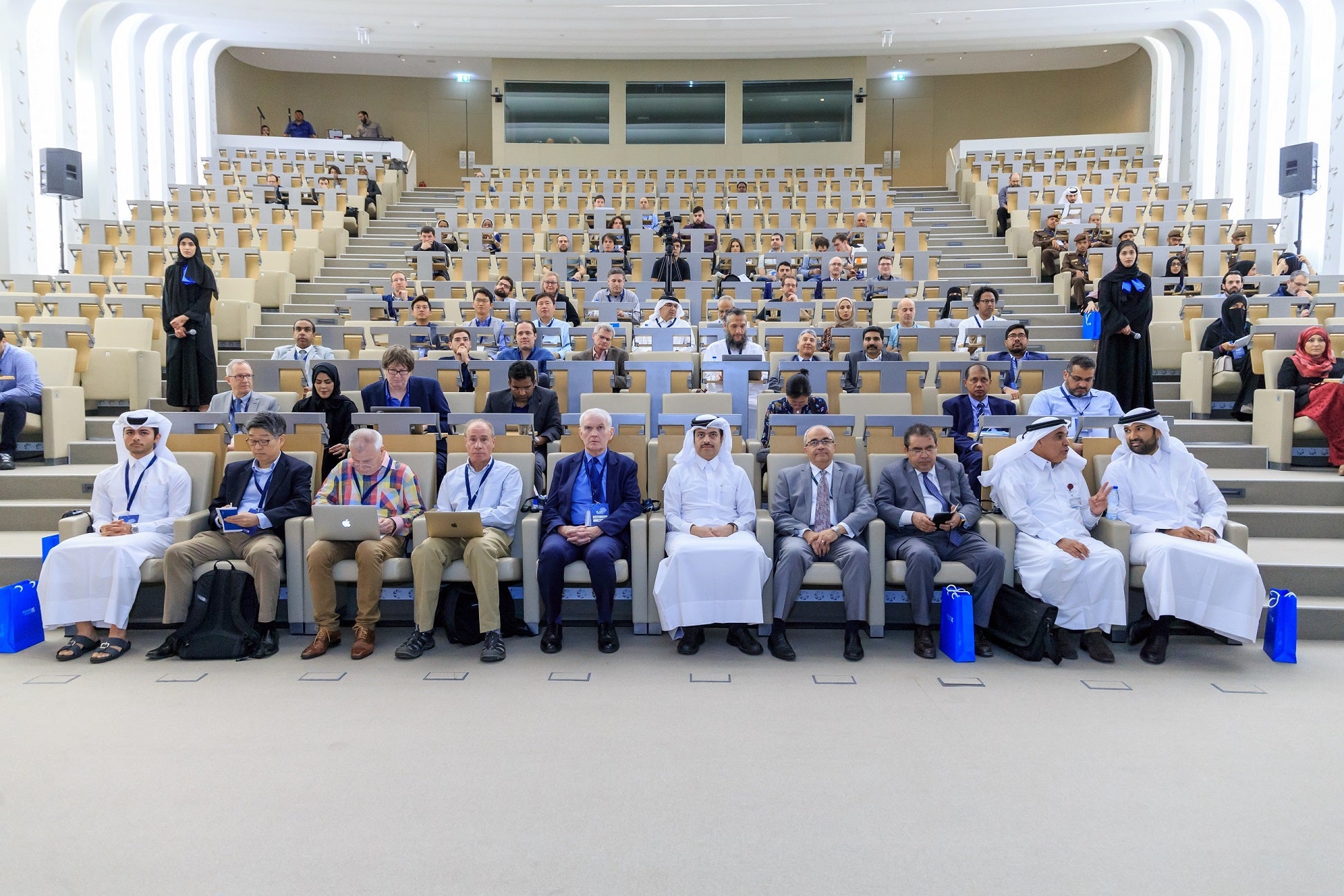
College of Health and Life Sciences Hosts International Conference for Advanced Neurotechnology
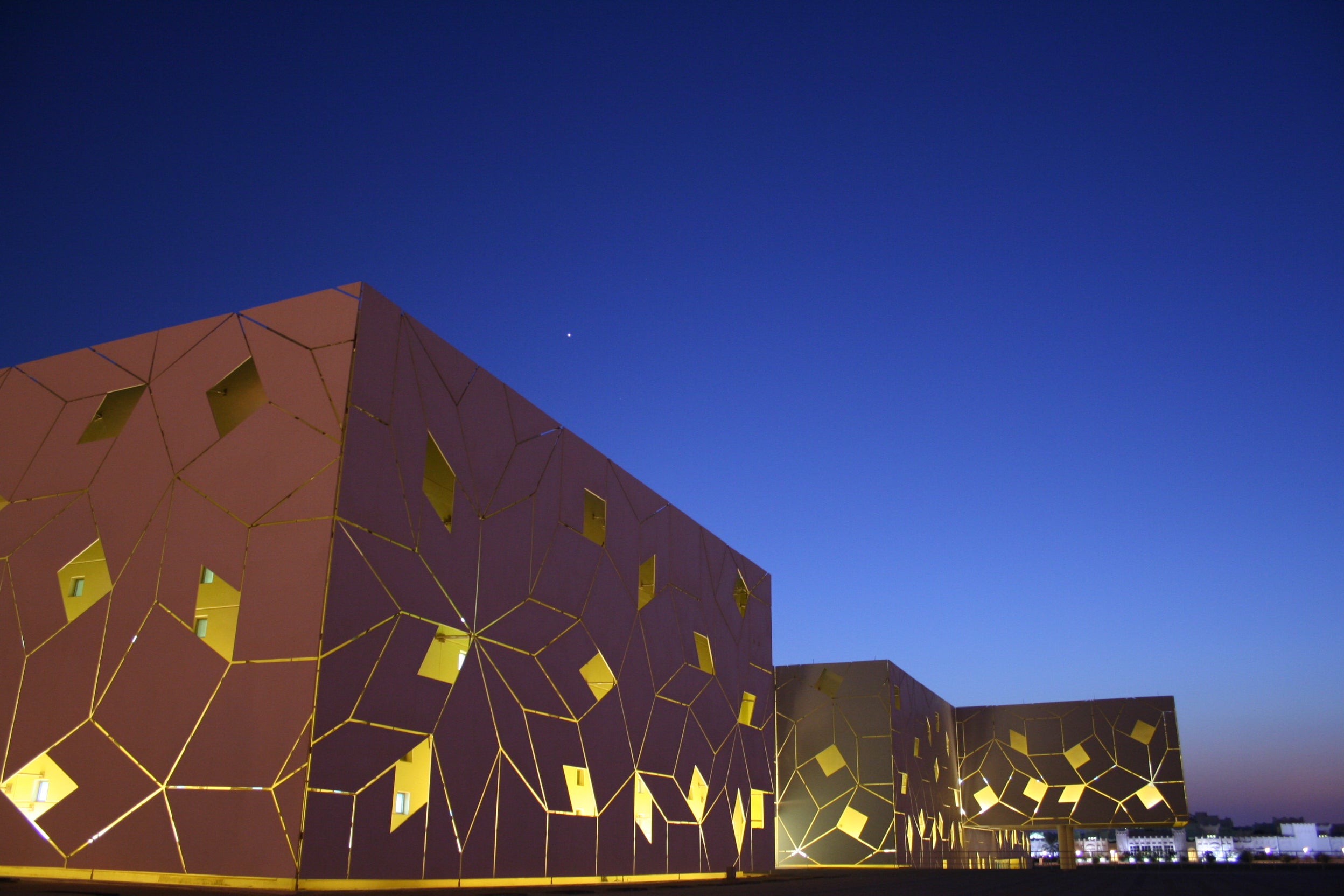
College of Health and Life Sciences Seminar Considers Latest Research on Tumor Progression
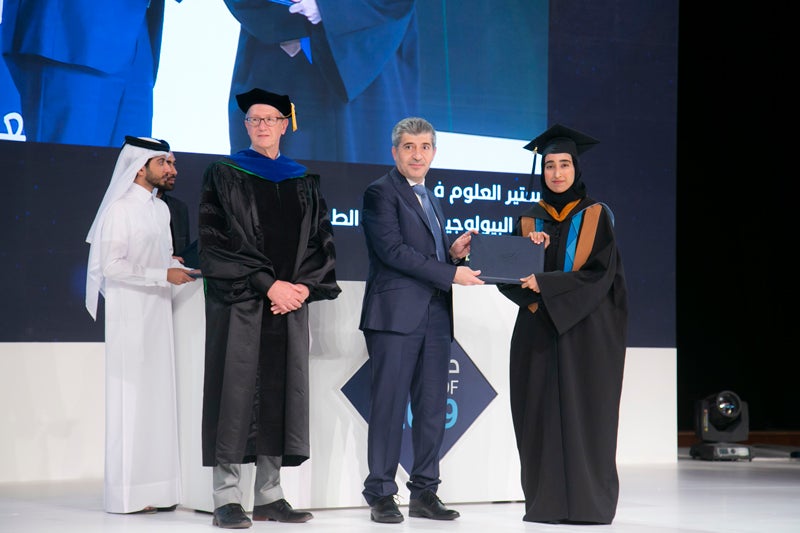
HBKU’s College of Health and Life Sciences Graduates Tackling Qatar’s Pressing Challenges

HBKU College of Health and Life Sciences and Equine Veterinary Medical Center Sign MoU

HBKU’s College of Health and Life Sciences Workshop Advances Laboratory Skills of Graduate Students

HBKU’s College of Health and Life Sciences Hosts Seminar on Influenza Vaccines

College of Health and Life Science Equips Physicians to Analyze and Interpret Genetic Variation

CHLS Aims at Precision Medicine Approach with Research on Antidepressant Prescription Trends in Qatar

College of Health and Life Sciences Hosts International Conference for Advanced Neurotechnology

College of Health and Life Sciences Seminar Considers Latest Research on Tumor Progression

HBKU’s College of Health and Life Sciences Graduates Tackling Qatar’s Pressing Challenges

HBKU College of Health and Life Sciences and Equine Veterinary Medical Center Sign MoU

HBKU’s College of Health and Life Sciences Workshop Advances Laboratory Skills of Graduate Students

HBKU’s College of Health and Life Sciences Hosts Seminar on Influenza Vaccines

College of Health and Life Science Equips Physicians to Analyze and Interpret Genetic Variation

CHLS Aims at Precision Medicine Approach with Research on Antidepressant Prescription Trends in Qatar

College of Health and Life Sciences Hosts International Conference for Advanced Neurotechnology

College of Health and Life Sciences Seminar Considers Latest Research on Tumor Progression

HBKU’s College of Health and Life Sciences Graduates Tackling Qatar’s Pressing Challenges

HBKU College of Health and Life Sciences and Equine Veterinary Medical Center Sign MoU

HBKU’s College of Health and Life Sciences Workshop Advances Laboratory Skills of Graduate Students

HBKU’s College of Health and Life Sciences Hosts Seminar on Influenza Vaccines

College of Health and Life Science Equips Physicians to Analyze and Interpret Genetic Variation

CHLS Aims at Precision Medicine Approach with Research on Antidepressant Prescription Trends in Qatar

College of Health and Life Sciences Hosts International Conference for Advanced Neurotechnology

College of Health and Life Sciences Seminar Considers Latest Research on Tumor Progression

HBKU’s College of Health and Life Sciences Graduates Tackling Qatar’s Pressing Challenges

HBKU College of Health and Life Sciences and Equine Veterinary Medical Center Sign MoU

HBKU’s College of Health and Life Sciences Workshop Advances Laboratory Skills of Graduate Students

HBKU’s College of Health and Life Sciences Hosts Seminar on Influenza Vaccines

College of Health and Life Science Equips Physicians to Analyze and Interpret Genetic Variation

CHLS Aims at Precision Medicine Approach with Research on Antidepressant Prescription Trends in Qatar

College of Health and Life Sciences Hosts International Conference for Advanced Neurotechnology

College of Health and Life Sciences Seminar Considers Latest Research on Tumor Progression

HBKU’s College of Health and Life Sciences Graduates Tackling Qatar’s Pressing Challenges

HBKU College of Health and Life Sciences and Equine Veterinary Medical Center Sign MoU

HBKU’s College of Health and Life Sciences Workshop Advances Laboratory Skills of Graduate Students

HBKU’s College of Health and Life Sciences Hosts Seminar on Influenza Vaccines

College of Health and Life Science Equips Physicians to Analyze and Interpret Genetic Variation

CHLS Aims at Precision Medicine Approach with Research on Antidepressant Prescription Trends in Qatar

College of Health and Life Sciences Hosts International Conference for Advanced Neurotechnology

College of Health and Life Sciences Seminar Considers Latest Research on Tumor Progression

HBKU’s College of Health and Life Sciences Graduates Tackling Qatar’s Pressing Challenges

HBKU College of Health and Life Sciences and Equine Veterinary Medical Center Sign MoU

HBKU’s College of Health and Life Sciences Workshop Advances Laboratory Skills of Graduate Students

HBKU’s College of Health and Life Sciences Hosts Seminar on Influenza Vaccines

College of Health and Life Science Equips Physicians to Analyze and Interpret Genetic Variation

CHLS Aims at Precision Medicine Approach with Research on Antidepressant Prescription Trends in Qatar

College of Health and Life Sciences Hosts International Conference for Advanced Neurotechnology

College of Health and Life Sciences Seminar Considers Latest Research on Tumor Progression

HBKU’s College of Health and Life Sciences Graduates Tackling Qatar’s Pressing Challenges

HBKU College of Health and Life Sciences and Equine Veterinary Medical Center Sign MoU

HBKU’s College of Health and Life Sciences Workshop Advances Laboratory Skills of Graduate Students

HBKU’s College of Health and Life Sciences Hosts Seminar on Influenza Vaccines

College of Health and Life Science Equips Physicians to Analyze and Interpret Genetic Variation

CHLS Aims at Precision Medicine Approach with Research on Antidepressant Prescription Trends in Qatar

College of Health and Life Sciences Hosts International Conference for Advanced Neurotechnology

College of Health and Life Sciences Seminar Considers Latest Research on Tumor Progression

HBKU’s College of Health and Life Sciences Graduates Tackling Qatar’s Pressing Challenges

HBKU College of Health and Life Sciences and Equine Veterinary Medical Center Sign MoU

HBKU’s College of Health and Life Sciences Workshop Advances Laboratory Skills of Graduate Students

HBKU’s College of Health and Life Sciences Hosts Seminar on Influenza Vaccines

College of Health and Life Science Equips Physicians to Analyze and Interpret Genetic Variation

CHLS Aims at Precision Medicine Approach with Research on Antidepressant Prescription Trends in Qatar

College of Health and Life Sciences Hosts International Conference for Advanced Neurotechnology

College of Health and Life Sciences Seminar Considers Latest Research on Tumor Progression

HBKU’s College of Health and Life Sciences Graduates Tackling Qatar’s Pressing Challenges

HBKU College of Health and Life Sciences and Equine Veterinary Medical Center Sign MoU

HBKU’s College of Health and Life Sciences Workshop Advances Laboratory Skills of Graduate Students

HBKU’s College of Health and Life Sciences Hosts Seminar on Influenza Vaccines

College of Health and Life Science Equips Physicians to Analyze and Interpret Genetic Variation

CHLS Aims at Precision Medicine Approach with Research on Antidepressant Prescription Trends in Qatar

College of Health and Life Sciences Hosts International Conference for Advanced Neurotechnology

College of Health and Life Sciences Seminar Considers Latest Research on Tumor Progression

HBKU’s College of Health and Life Sciences Graduates Tackling Qatar’s Pressing Challenges

HBKU College of Health and Life Sciences and Equine Veterinary Medical Center Sign MoU

HBKU’s College of Health and Life Sciences Workshop Advances Laboratory Skills of Graduate Students

HBKU’s College of Health and Life Sciences Hosts Seminar on Influenza Vaccines

College of Health and Life Science Equips Physicians to Analyze and Interpret Genetic Variation

CHLS Aims at Precision Medicine Approach with Research on Antidepressant Prescription Trends in Qatar

College of Health and Life Sciences Hosts International Conference for Advanced Neurotechnology

College of Health and Life Sciences Seminar Considers Latest Research on Tumor Progression

HBKU’s College of Health and Life Sciences Graduates Tackling Qatar’s Pressing Challenges

HBKU College of Health and Life Sciences and Equine Veterinary Medical Center Sign MoU

HBKU’s College of Health and Life Sciences Workshop Advances Laboratory Skills of Graduate Students

HBKU’s College of Health and Life Sciences Hosts Seminar on Influenza Vaccines

College of Health and Life Science Equips Physicians to Analyze and Interpret Genetic Variation

CHLS Aims at Precision Medicine Approach with Research on Antidepressant Prescription Trends in Qatar

College of Health and Life Sciences Hosts International Conference for Advanced Neurotechnology

College of Health and Life Sciences Seminar Considers Latest Research on Tumor Progression

HBKU’s College of Health and Life Sciences Graduates Tackling Qatar’s Pressing Challenges

HBKU College of Health and Life Sciences and Equine Veterinary Medical Center Sign MoU

HBKU’s College of Health and Life Sciences Workshop Advances Laboratory Skills of Graduate Students

HBKU’s College of Health and Life Sciences Hosts Seminar on Influenza Vaccines

College of Health and Life Science Equips Physicians to Analyze and Interpret Genetic Variation

CHLS Aims at Precision Medicine Approach with Research on Antidepressant Prescription Trends in Qatar

College of Health and Life Sciences Hosts International Conference for Advanced Neurotechnology

College of Health and Life Sciences Seminar Considers Latest Research on Tumor Progression

HBKU’s College of Health and Life Sciences Graduates Tackling Qatar’s Pressing Challenges

HBKU College of Health and Life Sciences and Equine Veterinary Medical Center Sign MoU

HBKU’s College of Health and Life Sciences Workshop Advances Laboratory Skills of Graduate Students

HBKU’s College of Health and Life Sciences Hosts Seminar on Influenza Vaccines

College of Health and Life Science Equips Physicians to Analyze and Interpret Genetic Variation

CHLS Aims at Precision Medicine Approach with Research on Antidepressant Prescription Trends in Qatar

College of Health and Life Sciences Hosts International Conference for Advanced Neurotechnology

College of Health and Life Sciences Seminar Considers Latest Research on Tumor Progression

HBKU’s College of Health and Life Sciences Graduates Tackling Qatar’s Pressing Challenges

HBKU College of Health and Life Sciences and Equine Veterinary Medical Center Sign MoU

HBKU’s College of Health and Life Sciences Workshop Advances Laboratory Skills of Graduate Students

HBKU’s College of Health and Life Sciences Hosts Seminar on Influenza Vaccines

College of Health and Life Science Equips Physicians to Analyze and Interpret Genetic Variation

CHLS Aims at Precision Medicine Approach with Research on Antidepressant Prescription Trends in Qatar

College of Health and Life Sciences Hosts International Conference for Advanced Neurotechnology

College of Health and Life Sciences Seminar Considers Latest Research on Tumor Progression

HBKU’s College of Health and Life Sciences Graduates Tackling Qatar’s Pressing Challenges

HBKU College of Health and Life Sciences and Equine Veterinary Medical Center Sign MoU

HBKU’s College of Health and Life Sciences Workshop Advances Laboratory Skills of Graduate Students

HBKU’s College of Health and Life Sciences Hosts Seminar on Influenza Vaccines

College of Health and Life Science Equips Physicians to Analyze and Interpret Genetic Variation

CHLS Aims at Precision Medicine Approach with Research on Antidepressant Prescription Trends in Qatar

College of Health and Life Sciences Hosts International Conference for Advanced Neurotechnology

College of Health and Life Sciences Seminar Considers Latest Research on Tumor Progression

HBKU’s College of Health and Life Sciences Graduates Tackling Qatar’s Pressing Challenges

HBKU College of Health and Life Sciences and Equine Veterinary Medical Center Sign MoU

HBKU’s College of Health and Life Sciences Workshop Advances Laboratory Skills of Graduate Students

HBKU’s College of Health and Life Sciences Hosts Seminar on Influenza Vaccines

College of Health and Life Science Equips Physicians to Analyze and Interpret Genetic Variation

CHLS Aims at Precision Medicine Approach with Research on Antidepressant Prescription Trends in Qatar

College of Health and Life Sciences Hosts International Conference for Advanced Neurotechnology

College of Health and Life Sciences Seminar Considers Latest Research on Tumor Progression

HBKU’s College of Health and Life Sciences Graduates Tackling Qatar’s Pressing Challenges

HBKU College of Health and Life Sciences and Equine Veterinary Medical Center Sign MoU

HBKU’s College of Health and Life Sciences Workshop Advances Laboratory Skills of Graduate Students

HBKU’s College of Health and Life Sciences Hosts Seminar on Influenza Vaccines

College of Health and Life Science Equips Physicians to Analyze and Interpret Genetic Variation

CHLS Aims at Precision Medicine Approach with Research on Antidepressant Prescription Trends in Qatar

College of Health and Life Sciences Hosts International Conference for Advanced Neurotechnology

College of Health and Life Sciences Seminar Considers Latest Research on Tumor Progression

HBKU’s College of Health and Life Sciences Graduates Tackling Qatar’s Pressing Challenges

HBKU College of Health and Life Sciences and Equine Veterinary Medical Center Sign MoU

HBKU’s College of Health and Life Sciences Workshop Advances Laboratory Skills of Graduate Students

HBKU’s College of Health and Life Sciences Hosts Seminar on Influenza Vaccines

College of Health and Life Science Equips Physicians to Analyze and Interpret Genetic Variation

CHLS Aims at Precision Medicine Approach with Research on Antidepressant Prescription Trends in Qatar

College of Health and Life Sciences Hosts International Conference for Advanced Neurotechnology

College of Health and Life Sciences Seminar Considers Latest Research on Tumor Progression

HBKU’s College of Health and Life Sciences Graduates Tackling Qatar’s Pressing Challenges

HBKU College of Health and Life Sciences and Equine Veterinary Medical Center Sign MoU

HBKU’s College of Health and Life Sciences Workshop Advances Laboratory Skills of Graduate Students

HBKU’s College of Health and Life Sciences Hosts Seminar on Influenza Vaccines

College of Health and Life Science Equips Physicians to Analyze and Interpret Genetic Variation

CHLS Aims at Precision Medicine Approach with Research on Antidepressant Prescription Trends in Qatar

College of Health and Life Sciences Hosts International Conference for Advanced Neurotechnology

College of Health and Life Sciences Seminar Considers Latest Research on Tumor Progression

HBKU’s College of Health and Life Sciences Graduates Tackling Qatar’s Pressing Challenges

HBKU College of Health and Life Sciences and Equine Veterinary Medical Center Sign MoU

HBKU’s College of Health and Life Sciences Workshop Advances Laboratory Skills of Graduate Students

HBKU’s College of Health and Life Sciences Hosts Seminar on Influenza Vaccines

College of Health and Life Science Equips Physicians to Analyze and Interpret Genetic Variation

CHLS Aims at Precision Medicine Approach with Research on Antidepressant Prescription Trends in Qatar

College of Health and Life Sciences Hosts International Conference for Advanced Neurotechnology

College of Health and Life Sciences Seminar Considers Latest Research on Tumor Progression

HBKU’s College of Health and Life Sciences Graduates Tackling Qatar’s Pressing Challenges

HBKU College of Health and Life Sciences and Equine Veterinary Medical Center Sign MoU

HBKU’s College of Health and Life Sciences Workshop Advances Laboratory Skills of Graduate Students

HBKU’s College of Health and Life Sciences Hosts Seminar on Influenza Vaccines

College of Health and Life Science Equips Physicians to Analyze and Interpret Genetic Variation

CHLS Aims at Precision Medicine Approach with Research on Antidepressant Prescription Trends in Qatar

College of Health and Life Sciences Hosts International Conference for Advanced Neurotechnology

College of Health and Life Sciences Seminar Considers Latest Research on Tumor Progression

HBKU’s College of Health and Life Sciences Graduates Tackling Qatar’s Pressing Challenges

HBKU College of Health and Life Sciences and Equine Veterinary Medical Center Sign MoU

HBKU’s College of Health and Life Sciences Workshop Advances Laboratory Skills of Graduate Students

HBKU’s College of Health and Life Sciences Hosts Seminar on Influenza Vaccines

College of Health and Life Science Equips Physicians to Analyze and Interpret Genetic Variation

CHLS Aims at Precision Medicine Approach with Research on Antidepressant Prescription Trends in Qatar

College of Health and Life Sciences Hosts International Conference for Advanced Neurotechnology

College of Health and Life Sciences Seminar Considers Latest Research on Tumor Progression

HBKU’s College of Health and Life Sciences Graduates Tackling Qatar’s Pressing Challenges

HBKU College of Health and Life Sciences and Equine Veterinary Medical Center Sign MoU

HBKU’s College of Health and Life Sciences Workshop Advances Laboratory Skills of Graduate Students

HBKU’s College of Health and Life Sciences Hosts Seminar on Influenza Vaccines

College of Health and Life Science Equips Physicians to Analyze and Interpret Genetic Variation

CHLS Aims at Precision Medicine Approach with Research on Antidepressant Prescription Trends in Qatar

College of Health and Life Sciences Hosts International Conference for Advanced Neurotechnology

College of Health and Life Sciences Seminar Considers Latest Research on Tumor Progression

HBKU’s College of Health and Life Sciences Graduates Tackling Qatar’s Pressing Challenges

HBKU College of Health and Life Sciences and Equine Veterinary Medical Center Sign MoU

HBKU’s College of Health and Life Sciences Workshop Advances Laboratory Skills of Graduate Students

HBKU’s College of Health and Life Sciences Hosts Seminar on Influenza Vaccines

College of Health and Life Science Equips Physicians to Analyze and Interpret Genetic Variation

CHLS Aims at Precision Medicine Approach with Research on Antidepressant Prescription Trends in Qatar

College of Health and Life Sciences Hosts International Conference for Advanced Neurotechnology

College of Health and Life Sciences Seminar Considers Latest Research on Tumor Progression

HBKU’s College of Health and Life Sciences Graduates Tackling Qatar’s Pressing Challenges

HBKU College of Health and Life Sciences and Equine Veterinary Medical Center Sign MoU

HBKU’s College of Health and Life Sciences Workshop Advances Laboratory Skills of Graduate Students

HBKU’s College of Health and Life Sciences Hosts Seminar on Influenza Vaccines

College of Health and Life Science Equips Physicians to Analyze and Interpret Genetic Variation

CHLS Aims at Precision Medicine Approach with Research on Antidepressant Prescription Trends in Qatar

College of Health and Life Sciences Hosts International Conference for Advanced Neurotechnology

College of Health and Life Sciences Seminar Considers Latest Research on Tumor Progression

HBKU’s College of Health and Life Sciences Graduates Tackling Qatar’s Pressing Challenges

HBKU College of Health and Life Sciences and Equine Veterinary Medical Center Sign MoU

HBKU’s College of Health and Life Sciences Workshop Advances Laboratory Skills of Graduate Students

HBKU’s College of Health and Life Sciences Hosts Seminar on Influenza Vaccines

College of Health and Life Science Equips Physicians to Analyze and Interpret Genetic Variation

CHLS Aims at Precision Medicine Approach with Research on Antidepressant Prescription Trends in Qatar

College of Health and Life Sciences Hosts International Conference for Advanced Neurotechnology

College of Health and Life Sciences Seminar Considers Latest Research on Tumor Progression

HBKU’s College of Health and Life Sciences Graduates Tackling Qatar’s Pressing Challenges

HBKU College of Health and Life Sciences and Equine Veterinary Medical Center Sign MoU

HBKU’s College of Health and Life Sciences Workshop Advances Laboratory Skills of Graduate Students

HBKU’s College of Health and Life Sciences Hosts Seminar on Influenza Vaccines

College of Health and Life Science Equips Physicians to Analyze and Interpret Genetic Variation

CHLS Aims at Precision Medicine Approach with Research on Antidepressant Prescription Trends in Qatar

College of Health and Life Sciences Hosts International Conference for Advanced Neurotechnology

College of Health and Life Sciences Seminar Considers Latest Research on Tumor Progression

HBKU’s College of Health and Life Sciences Graduates Tackling Qatar’s Pressing Challenges

HBKU College of Health and Life Sciences and Equine Veterinary Medical Center Sign MoU

HBKU’s College of Health and Life Sciences Workshop Advances Laboratory Skills of Graduate Students

HBKU’s College of Health and Life Sciences Hosts Seminar on Influenza Vaccines

College of Health and Life Science Equips Physicians to Analyze and Interpret Genetic Variation

CHLS Aims at Precision Medicine Approach with Research on Antidepressant Prescription Trends in Qatar

College of Health and Life Sciences Hosts International Conference for Advanced Neurotechnology

College of Health and Life Sciences Seminar Considers Latest Research on Tumor Progression

HBKU’s College of Health and Life Sciences Graduates Tackling Qatar’s Pressing Challenges

HBKU College of Health and Life Sciences and Equine Veterinary Medical Center Sign MoU

HBKU’s College of Health and Life Sciences Workshop Advances Laboratory Skills of Graduate Students

HBKU’s College of Health and Life Sciences Hosts Seminar on Influenza Vaccines

College of Health and Life Science Equips Physicians to Analyze and Interpret Genetic Variation

CHLS Aims at Precision Medicine Approach with Research on Antidepressant Prescription Trends in Qatar

College of Health and Life Sciences Hosts International Conference for Advanced Neurotechnology

College of Health and Life Sciences Seminar Considers Latest Research on Tumor Progression

HBKU’s College of Health and Life Sciences Graduates Tackling Qatar’s Pressing Challenges

HBKU College of Health and Life Sciences and Equine Veterinary Medical Center Sign MoU

HBKU’s College of Health and Life Sciences Workshop Advances Laboratory Skills of Graduate Students

HBKU’s College of Health and Life Sciences Hosts Seminar on Influenza Vaccines

College of Health and Life Science Equips Physicians to Analyze and Interpret Genetic Variation

CHLS Aims at Precision Medicine Approach with Research on Antidepressant Prescription Trends in Qatar

College of Health and Life Sciences Hosts International Conference for Advanced Neurotechnology

College of Health and Life Sciences Seminar Considers Latest Research on Tumor Progression

HBKU’s College of Health and Life Sciences Graduates Tackling Qatar’s Pressing Challenges

HBKU College of Health and Life Sciences and Equine Veterinary Medical Center Sign MoU

HBKU’s College of Health and Life Sciences Workshop Advances Laboratory Skills of Graduate Students

HBKU’s College of Health and Life Sciences Hosts Seminar on Influenza Vaccines

College of Health and Life Science Equips Physicians to Analyze and Interpret Genetic Variation

CHLS Aims at Precision Medicine Approach with Research on Antidepressant Prescription Trends in Qatar

College of Health and Life Sciences Hosts International Conference for Advanced Neurotechnology

College of Health and Life Sciences Seminar Considers Latest Research on Tumor Progression

HBKU’s College of Health and Life Sciences Graduates Tackling Qatar’s Pressing Challenges

HBKU College of Health and Life Sciences and Equine Veterinary Medical Center Sign MoU

HBKU’s College of Health and Life Sciences Workshop Advances Laboratory Skills of Graduate Students

HBKU’s College of Health and Life Sciences Hosts Seminar on Influenza Vaccines

College of Health and Life Science Equips Physicians to Analyze and Interpret Genetic Variation

CHLS Aims at Precision Medicine Approach with Research on Antidepressant Prescription Trends in Qatar

College of Health and Life Sciences Hosts International Conference for Advanced Neurotechnology

College of Health and Life Sciences Seminar Considers Latest Research on Tumor Progression

HBKU’s College of Health and Life Sciences Graduates Tackling Qatar’s Pressing Challenges

HBKU College of Health and Life Sciences and Equine Veterinary Medical Center Sign MoU

HBKU’s College of Health and Life Sciences Workshop Advances Laboratory Skills of Graduate Students

HBKU’s College of Health and Life Sciences Hosts Seminar on Influenza Vaccines

College of Health and Life Science Equips Physicians to Analyze and Interpret Genetic Variation

CHLS Aims at Precision Medicine Approach with Research on Antidepressant Prescription Trends in Qatar

College of Health and Life Sciences Hosts International Conference for Advanced Neurotechnology

College of Health and Life Sciences Seminar Considers Latest Research on Tumor Progression

HBKU’s College of Health and Life Sciences Graduates Tackling Qatar’s Pressing Challenges

HBKU College of Health and Life Sciences and Equine Veterinary Medical Center Sign MoU

HBKU’s College of Health and Life Sciences Workshop Advances Laboratory Skills of Graduate Students

HBKU’s College of Health and Life Sciences Hosts Seminar on Influenza Vaccines

College of Health and Life Science Equips Physicians to Analyze and Interpret Genetic Variation

CHLS Aims at Precision Medicine Approach with Research on Antidepressant Prescription Trends in Qatar

College of Health and Life Sciences Hosts International Conference for Advanced Neurotechnology

College of Health and Life Sciences Seminar Considers Latest Research on Tumor Progression

HBKU’s College of Health and Life Sciences Graduates Tackling Qatar’s Pressing Challenges

HBKU College of Health and Life Sciences and Equine Veterinary Medical Center Sign MoU

HBKU’s College of Health and Life Sciences Workshop Advances Laboratory Skills of Graduate Students

HBKU’s College of Health and Life Sciences Hosts Seminar on Influenza Vaccines

College of Health and Life Science Equips Physicians to Analyze and Interpret Genetic Variation

CHLS Aims at Precision Medicine Approach with Research on Antidepressant Prescription Trends in Qatar

College of Health and Life Sciences Hosts International Conference for Advanced Neurotechnology

College of Health and Life Sciences Seminar Considers Latest Research on Tumor Progression

HBKU’s College of Health and Life Sciences Graduates Tackling Qatar’s Pressing Challenges

HBKU College of Health and Life Sciences and Equine Veterinary Medical Center Sign MoU

HBKU’s College of Health and Life Sciences Workshop Advances Laboratory Skills of Graduate Students

HBKU’s College of Health and Life Sciences Hosts Seminar on Influenza Vaccines

College of Health and Life Science Equips Physicians to Analyze and Interpret Genetic Variation

CHLS Aims at Precision Medicine Approach with Research on Antidepressant Prescription Trends in Qatar

College of Health and Life Sciences Hosts International Conference for Advanced Neurotechnology

College of Health and Life Sciences Seminar Considers Latest Research on Tumor Progression

HBKU’s College of Health and Life Sciences Graduates Tackling Qatar’s Pressing Challenges

HBKU College of Health and Life Sciences and Equine Veterinary Medical Center Sign MoU

HBKU’s College of Health and Life Sciences Workshop Advances Laboratory Skills of Graduate Students

HBKU’s College of Health and Life Sciences Hosts Seminar on Influenza Vaccines

College of Health and Life Science Equips Physicians to Analyze and Interpret Genetic Variation

CHLS Aims at Precision Medicine Approach with Research on Antidepressant Prescription Trends in Qatar

College of Health and Life Sciences Hosts International Conference for Advanced Neurotechnology

College of Health and Life Sciences Seminar Considers Latest Research on Tumor Progression

HBKU’s College of Health and Life Sciences Graduates Tackling Qatar’s Pressing Challenges

HBKU College of Health and Life Sciences and Equine Veterinary Medical Center Sign MoU

HBKU’s College of Health and Life Sciences Workshop Advances Laboratory Skills of Graduate Students

HBKU’s College of Health and Life Sciences Hosts Seminar on Influenza Vaccines

College of Health and Life Science Equips Physicians to Analyze and Interpret Genetic Variation

CHLS Aims at Precision Medicine Approach with Research on Antidepressant Prescription Trends in Qatar

College of Health and Life Sciences Hosts International Conference for Advanced Neurotechnology

College of Health and Life Sciences Seminar Considers Latest Research on Tumor Progression

HBKU’s College of Health and Life Sciences Graduates Tackling Qatar’s Pressing Challenges

HBKU College of Health and Life Sciences and Equine Veterinary Medical Center Sign MoU

HBKU’s College of Health and Life Sciences Workshop Advances Laboratory Skills of Graduate Students

HBKU’s College of Health and Life Sciences Hosts Seminar on Influenza Vaccines

College of Health and Life Science Equips Physicians to Analyze and Interpret Genetic Variation

CHLS Aims at Precision Medicine Approach with Research on Antidepressant Prescription Trends in Qatar

College of Health and Life Sciences Hosts International Conference for Advanced Neurotechnology

College of Health and Life Sciences Seminar Considers Latest Research on Tumor Progression

HBKU’s College of Health and Life Sciences Graduates Tackling Qatar’s Pressing Challenges

HBKU College of Health and Life Sciences and Equine Veterinary Medical Center Sign MoU

HBKU’s College of Health and Life Sciences Workshop Advances Laboratory Skills of Graduate Students






